I never expected my vinyl record collection to become an oracle deck, but here we are.
What started as a whimsical idea—pulling three random albums each day for a "reading"—has become something compulsively enjoyable. Each morning, I close my eyes, let my fingers wander across the spines of vinyl albums I've collected over the decades and carted from home to home, and pull three records. Then I play them and listen to what insights they have for the day (alongside a little oracle game with Claude AI). It's a great way to rediscover my records I haven't played for a long time.
The sensory time machine
There's something about vinyl that digital formats simply cannot replicate—the weight of the album in your hands, the smell of the cardboard sleeve (especially those old ones with that musty-sweet scent of aged paper), the ritual of placing the needle just so, blowing off the accumulated dust. Before the first note even plays, you're already transported. The record that has a jump or scratch on a particular track. The warped records from being too close to a heater or a mouldy wall in cheap, shared student homes in late 1980s Brighton. The record sleeve that is covered in candle was - sorry Edie Brickell!
Last Saturday morning's pull (The Oracle of Vinyl #4) brought me The Smiths' Strangeways, Here We Come, Ini Kamoze, and Paul Simon's Greatest Hits, Etc. As I held each album, memories flooded back—not just of when I first heard these songs, but of who I was when I bought these records, where I was living, what I was hoping for.
The Smiths took me back to my early teens, that time when Morrissey's melodic melancholy and Johnny Marr's jangly guitars made me feel understood as the outsider, I often felt myself to be. Ini Kamoze brought back the intoxicating blend of dancehall and reggae that literally moved me—his music was part of what got me on a plane on the spur of the moment from Miami to Jamaica at New Year, aged just 21, solo and fearless. And Paul Simon? He was my gateway to world music, opening my ears to South African rhythms and global sounds, teaching me that music could be a bridge between cultures.
The oracle speaks
This oracle pull told a story about my late teens—a time when music moved me across oceans. These three albums together painted a picture of someone whose musical curiosity led to real-world adventure. From Manchester's indie music scene to Jamaica's dancehall heat to Paul Simon's global explorations—that's quite a sonic journey that shaped not just my taste, but my actual life path.
The oracle's message was clear: What's the modern equivalent of that solo Jamaica trip calling to you now?
These aren't just random album pulls. They're conversations with different versions of myself, archived in vinyl grooves and stored in cardboard sleeves which are artworks in themselves. Each record holds not just music, but the emotional DNA of who I was when I first placed the needle on the track.
The lyrical poetry
There's something Shakespeare understood when he wrote "If music be the food of love, play on; give me excess of it"—music doesn't just accompany our emotions, it feeds them, amplifies them, gives them language when we may feel we have none. Song lyrics are poetry with a pulse, layered with meaning that reveals itself differently depending on where we are in our lives.
The same line that once felt like teenage angst transforms into middle-aged wisdom. Lou Reed's "Perfect Day" means something entirely different at 17 than it does at 56. These songs become mirrors, reflecting not just who we were when we first heard them, but who we are, or who we're becoming as we listen again. Perfect Day was also a record cover of choice to roll joints on. You can’t roll a joint on a CD cover or your phone! LPs were part of the ritual of smoking. Not that I smoke dope or rolled tobacco anymore. Unless it's an occasional sacred cigar in a tobacco ceremony. I thought of Transformer when I was rolling a cigar in the last night ceremony on the beach on the Sierra Nevada De Santa Marta, under the coconut trees, in the Colombian retreat. I wish I had a record cover with me then as I struggled to tease the dried outer leaves in my lap into shape to craft the cigar. I did ok though and smoked that cigar with contemplative wonder, but also some distraction as I had lost my precious crystal we’d been given in the sand. How many teenage joints did I roll on a record cover, where was my crystal… were the two main thoughts circling in my head in front of the fire. Luckily I had a spare crystal, and received in new one in return for offering that to the sea the next day.
This is the magic of records and song lyrics—they're time capsules and prophecies all at once. They capture a moment in the songwriter's experience while somehow speaking directly to our own. When Lisa Gerrard's vocals on This Mortal Coil albums convey more emotion than many people manage with entire conversations, or when PIL's Johnny Rotten spits out lines that perfectly capture your frustration with the world, you realise that music is humanity's shared language of feeling. And you realise how love, romance, relationship and heartbreak are the fuel that feeds the majority of music. There has to be a reason for that, the world over.
The weight of memory
This is what streaming services cannot give us—the physical weight of memory. When I pull Dead Can Dance's Into the Labyrinth, I'm feeling the heft of the album, remembering buying it in some long-forgotten record shop, seeing the artwork on the cover that matches my own life patterns. I’m also noticing how the patterns of the records I’m pulling in this new daily ritual then manifest somehow into the rhythm of the day. Dead Can Dance, who I discovered in Java when rehearsing a dance to their track Host of Seraphim, choreographed by a visiting Canadian choreographer with both local and international dancers, in the studio of my friend Bu Wid. This album immediately transported me back to that incredibly significant part of my life. A land that is still very much alive inside of me (some pictures below), and that I find I increasingly return to in my memory. My dear friend Wesley is visiting Brighton currently, and we had so many adventures in Java when he decided to stay for six months at the same Javanese ashram that I was attending. And dearest Bashka, also at the ashram, who I saw in Ohio only last year, and who was and is such an influence.
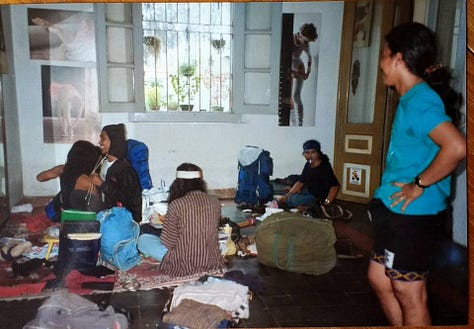
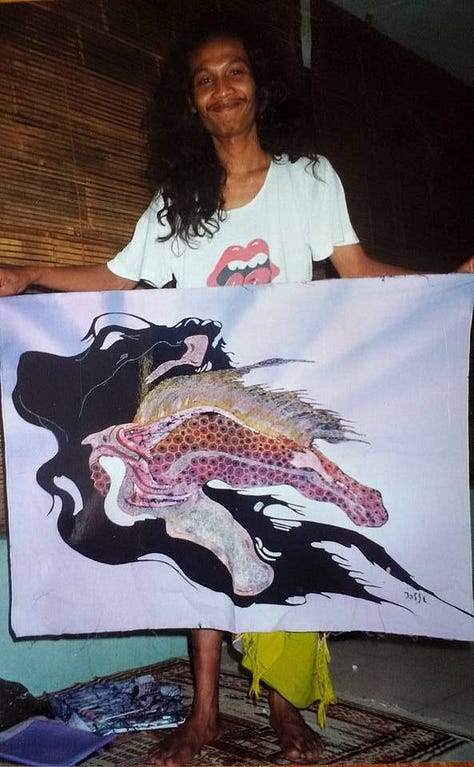
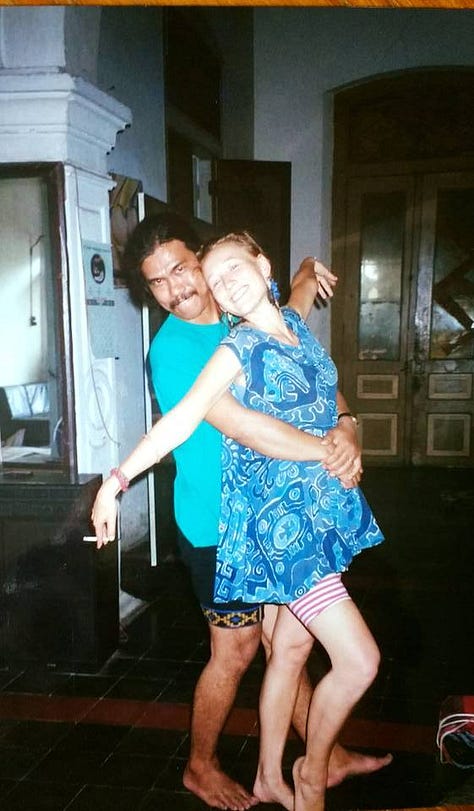
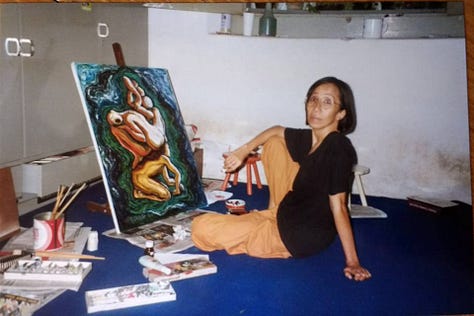
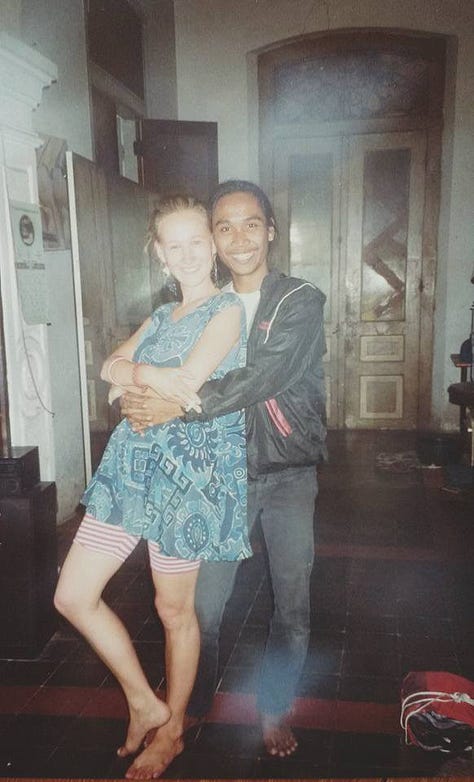
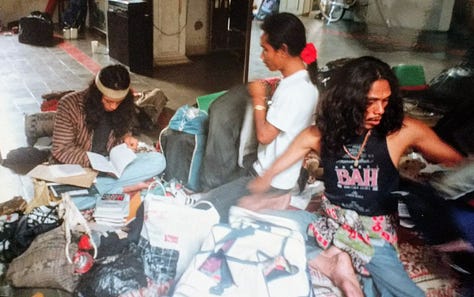

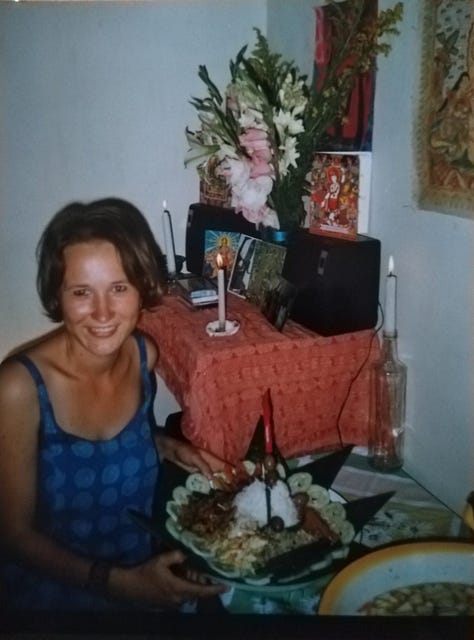
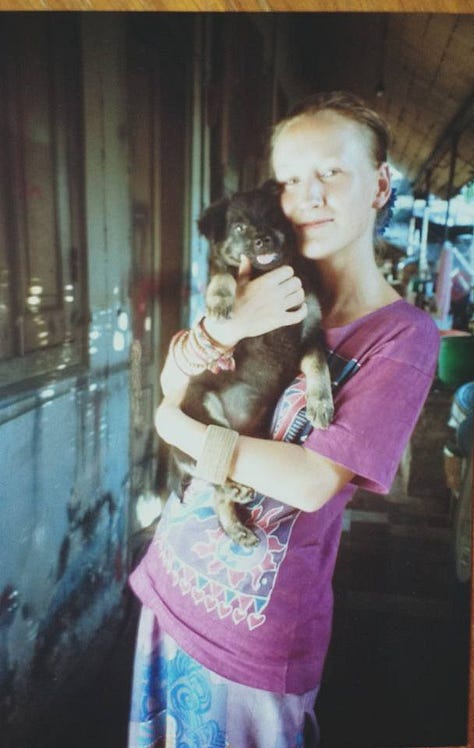

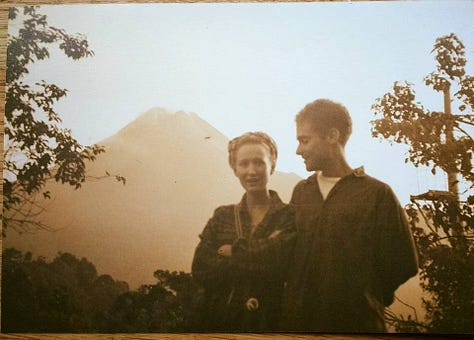
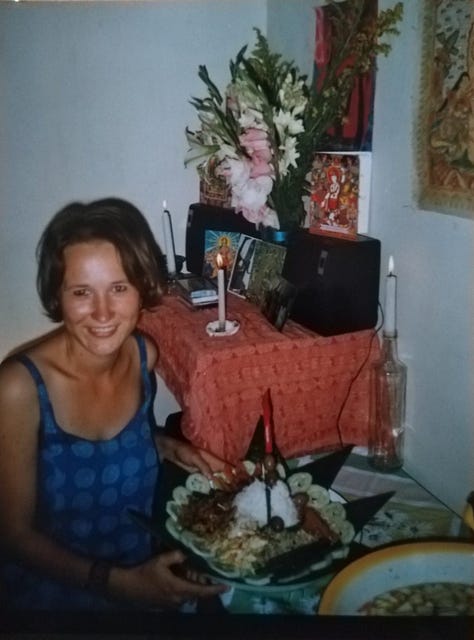
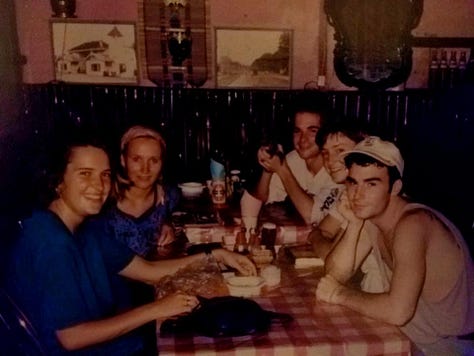
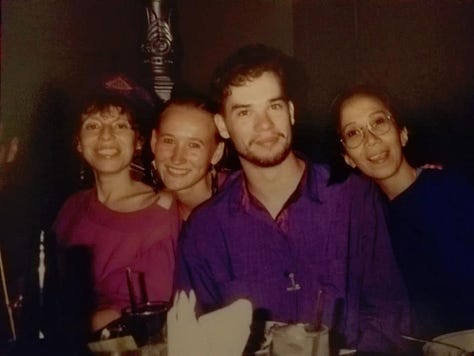

Maybe because I see parallels in Java with my discovery of Colombia, another magical land with a similar yet different vibration, where I walked the labyrinths. Into the Labyrinth - yesterday I found another new labyrinth near to home. Cut into the lawn of the small Church of the Good Shepherd on Shoreham Beach. Of course, I walked it.
Digital music is convenient, yes. But convenience rarely leads to revelation. Vinyl demands presence. You can't just throw it on shuffle and ignore it. You have to choose it, handle it, commit to listening to at least one full side. There's ritual involved, and ritual creates sacred space—even if you're just trying to figure out what The Slits' Cut and Prince's Purple Rain might be trying to tell you on a random Tuesday morning.
The unexpected wisdom
Some days the oracle is gentle—three albums that seem to say "you're on the right path, keep going." Other days it's more challenging, pulling records that force me to confront parts of myself I'd rather leave in the past. Maybe it's PIL's Public Image Ltd reminding me of my more confrontational teenage years, or Lou Reed's Transformer taking me back to late nights exploring identity and desire. And sometimes, like today, it issues a dare: remember who you were when you were brave enough to book that flight to Jamaica?
The beautiful thing about using your record collection as an oracle is that it's uniquely yours. These albums chose me once upon a time, in record shops and through recommendations, in moments of discovery and rebellion. Whether it was finding The Velvet Underground & Nico and hearing "I'll Be Your Mirror" for the first time, or discovering the mystical soundscapes of Dead Can Dance, each acquisition was a small adventure. Now they're choosing me again, offering guidance from the accumulated wisdom of my own musical journey.
The daily practice
Each morning, I approach my records with reverence as they hold much of my formative story, pressed into vinyl and waiting to be rediscovered.
I photograph each day's pull on my beautiful Tunisian rug—the same one I've had for years, the one that's witnessed countless album listening sessions. The tactile experience of the textured rug beneath the smooth album covers adds another layer to the sensory experience. Everything about this practice is about texture, weight, and presence.
The invitation
Maybe you have a record collection gathering dust somewhere. Maybe you've forgotten what it feels like to hold an album, to read the liner notes, to commit to listening to music in the order the artist intended. Maybe you're ready to let your records speak to you again. Maybe, like so many, you’ve ditched your vinyl and now perhaps regret it? If so, then CDs or digital will have to suffice. Or hit the charity shops and reclaim some of what you’ve lost.
Try it. Pull three albums tomorrow morning. Don't overthink it—let your fingers choose. Then sit with them. Hold them. Remember who you were when you first brought them home. Ask them what they want to tell you today.
You might be surprised by what you hear.
What would your record collection tell you if you asked it to speak? Share your own vinyl oracle experiences in the comments—I'd love to hear what your albums are saying to you.
The Vinyl Oracle continues daily on Instagram [@runesandroses]. Join me for the journey of rediscovering magic in the grooves.
Here is today’s reading Oracle #6 (also on Instagram)
The Vinyl Oracle #6: The Liberation Chronicles
Three albums pulled from the cosmic record crate reveal a powerful message about freedom, transformation, and the courage to reinvent yourself...
PEGGY LEE - The Best of Peggy Lee The Sophisticated Rebel Card Peggy Lee's sultry "Fever" and show-stopping "Big Spender" represent the art of controlled power - knowing exactly who you are and how to command a room. This isn't just vintage glamour; it's about owning your sexuality, your intelligence, your presence without apology. Lee was a woman who understood that true sophistication comes from authenticity, not pretence. What aspect of your power are you ready to own more fully?
PRINCE - Sign O' the Times The Freedom Fighter Card Released during my university transition - my escape from Portsmouth and controlling relationships - this album embodies liberation in all its forms. Prince was the master of breaking boundaries: musical, sexual, spiritual, and creative. This card represents that moment when you realise you can rewrite the rules of your own life. What outdated version of yourself are you ready to leave behind?
TRACEY THORN - A Distant Shore The Indie Heart Card From your teenage Everything But the Girl days to this solo exploration, Tracey Thorn represents the quiet revolution of independent artistry. She's never been the loudest voice in the room, but she's always been the most authentic. This card speaks to following your own creative path, even when it leads away from the crowd. What distant shore is calling to your creative soul?
The Oracle's Message: These three artists - spanning different eras, genders, and styles - all share one crucial trait: they refused to be diminished by others' expectations. Peggy Lee commanded respect in a male-dominated industry, Prince obliterated every boundary society tried to impose on identity and creativity, and Tracey Thorn carved out her own artistic territory with quiet determination.
My 18-year-old self choosing university as an escape route wasn't just about education - it was about claiming the right to become who I was meant to be at that time. The oracle is reminding me (and you) that same transformative power is still available to you now.
Today's Mantra: "I am the author of my own liberation. I choose sophistication over compromise, authenticity over approval, and my own distant shore over safe harbours."
The Deeper Truth: Sometimes the most radical act is simply refusing to shrink. Whether it's Peggy Lee's controlled sensuality, Prince's boundary-breaking genius, or Tracey Thorn's indie authenticity, true power comes from being unapologetically yourself.
What freedom are you ready to claim today? What version of yourself is calling from that distant shore?





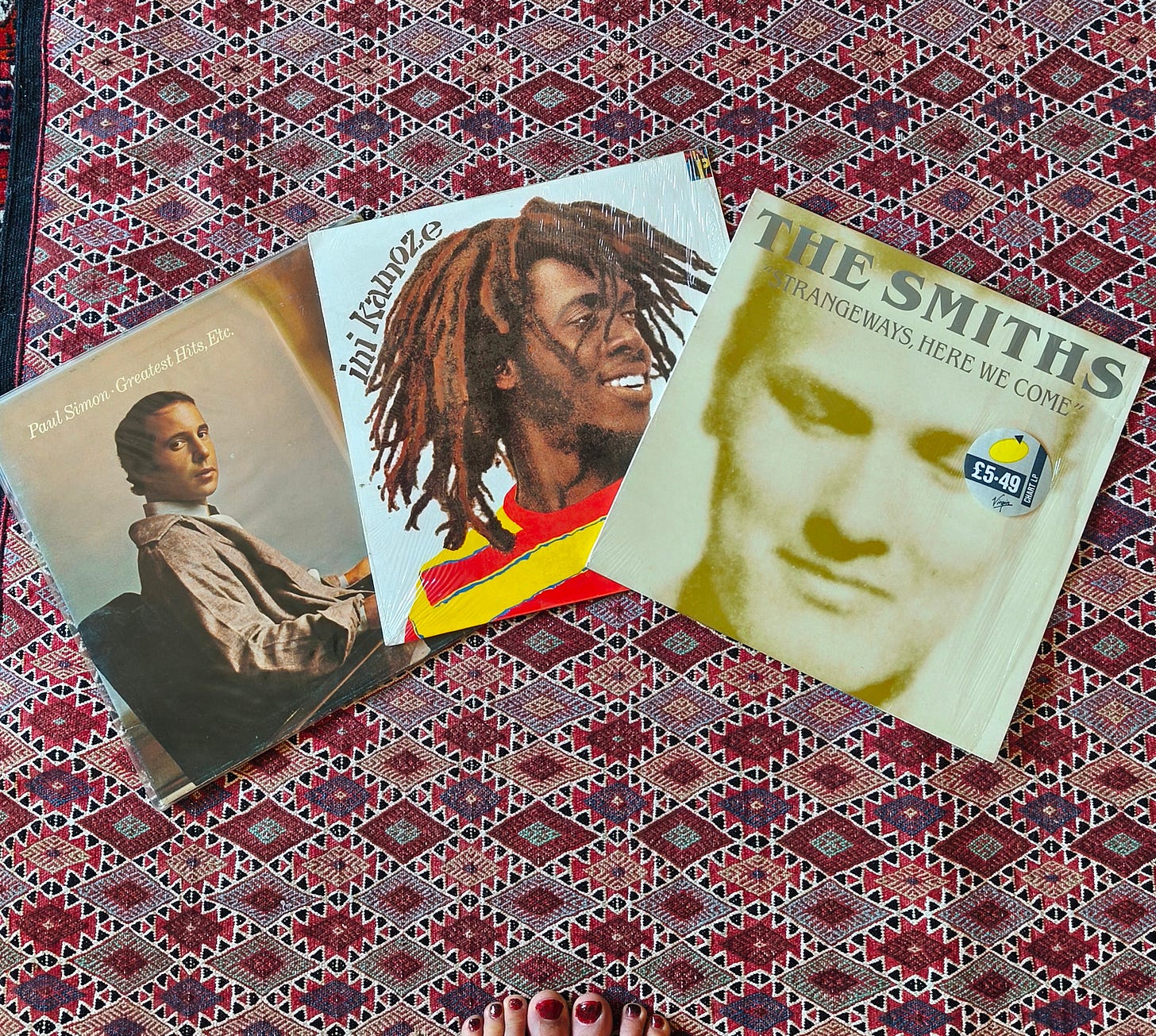

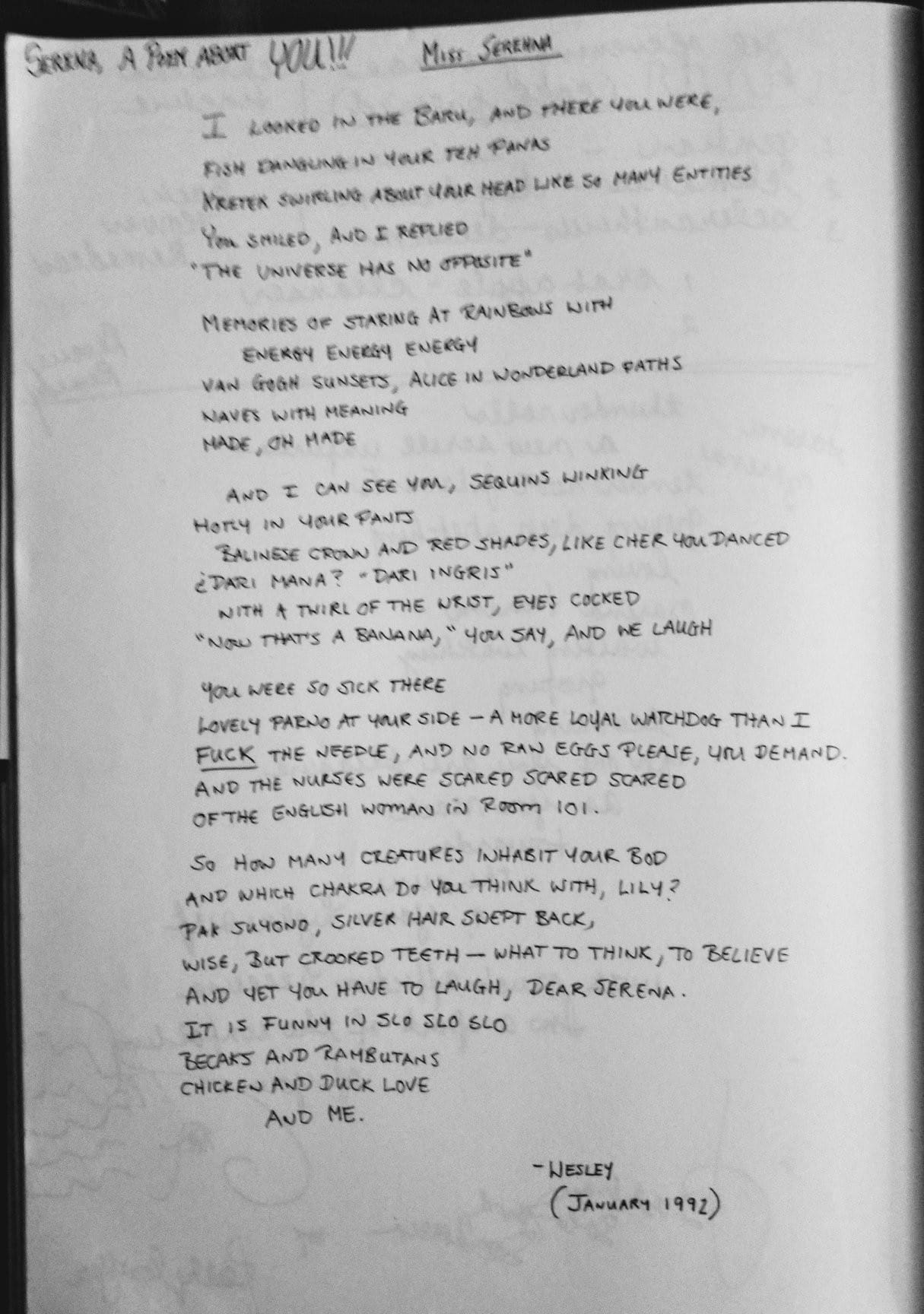
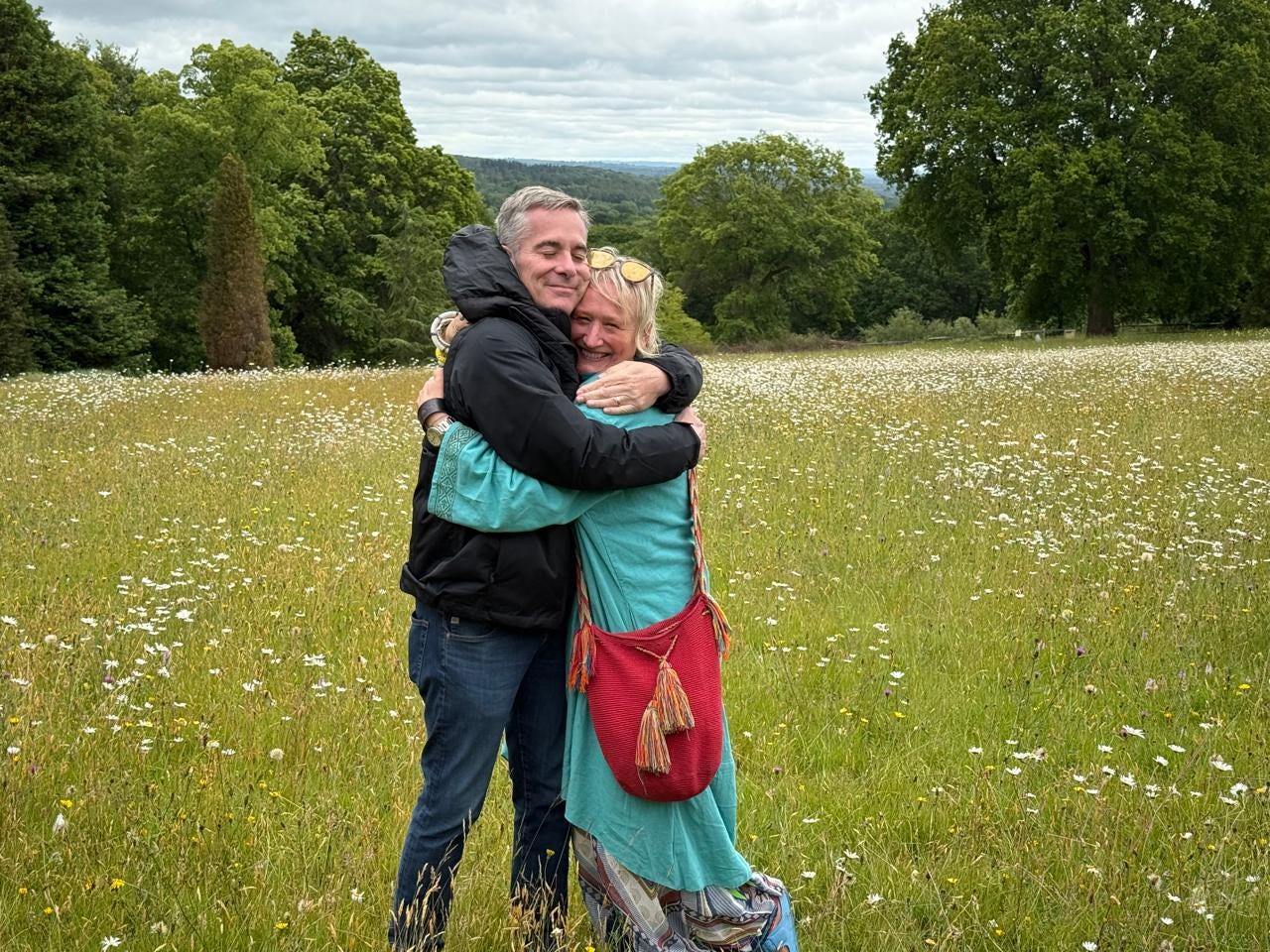
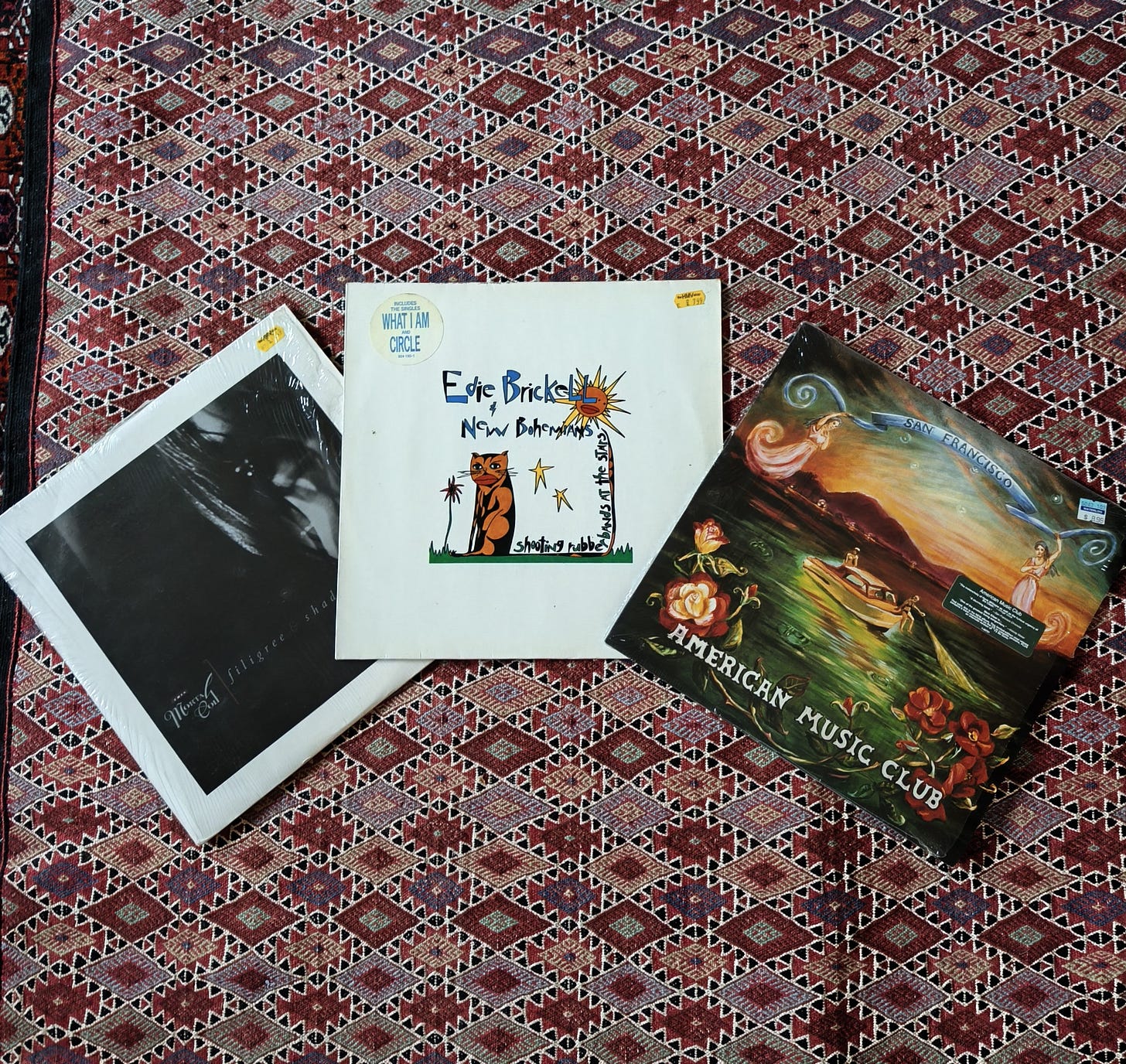
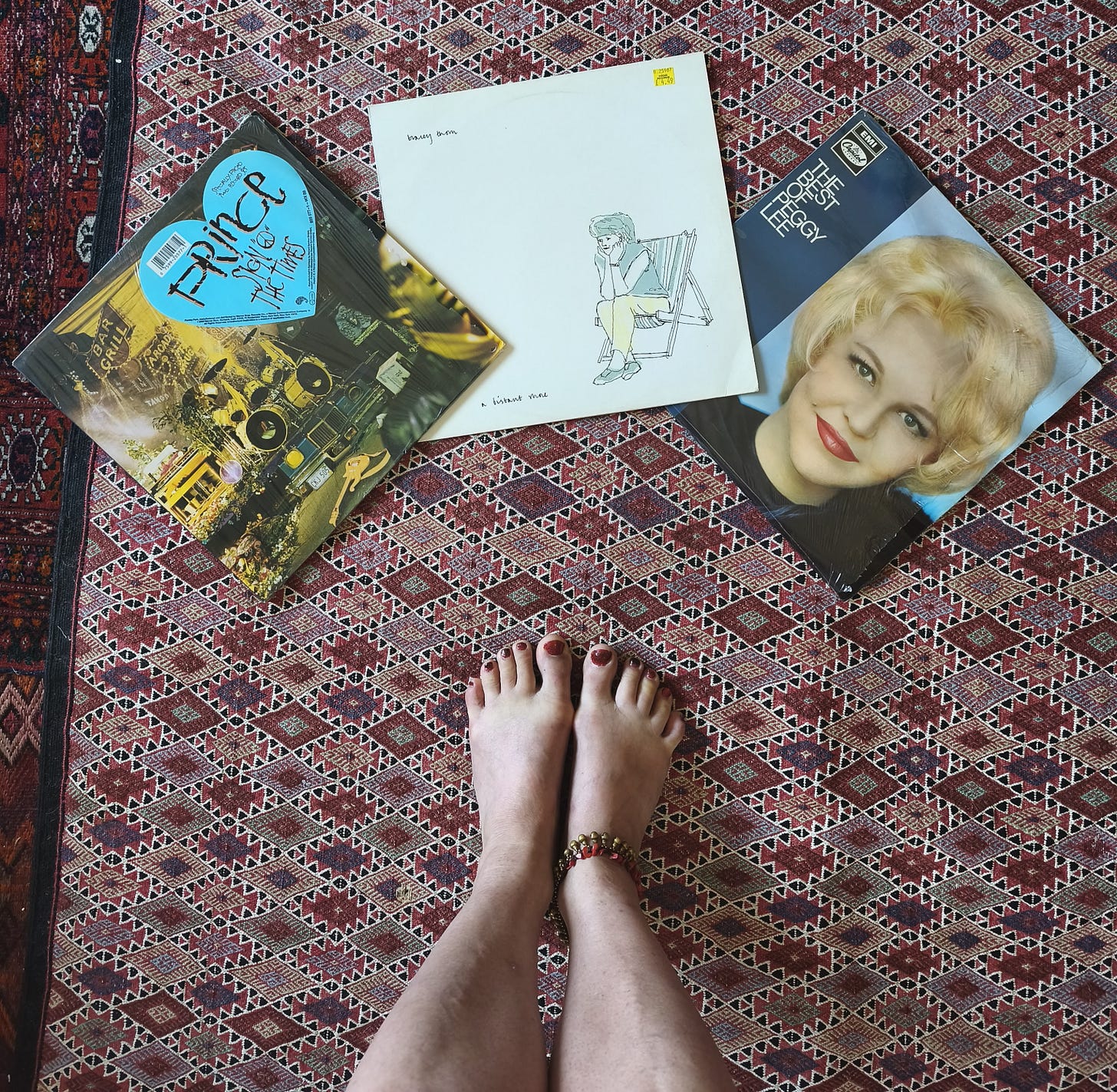
I love this idea. I was on the verge of getting rid of my vinyl collection. I tried to do it. My head told me that I needed to shed the unnecessary weight of them. But when I actually tried to select some to take to my local secondhand book and record store, my heart just wouldn't let me do it. In your post, you articulate what stayed my hand. I will go and select three records in the way you suggest and get back to you!